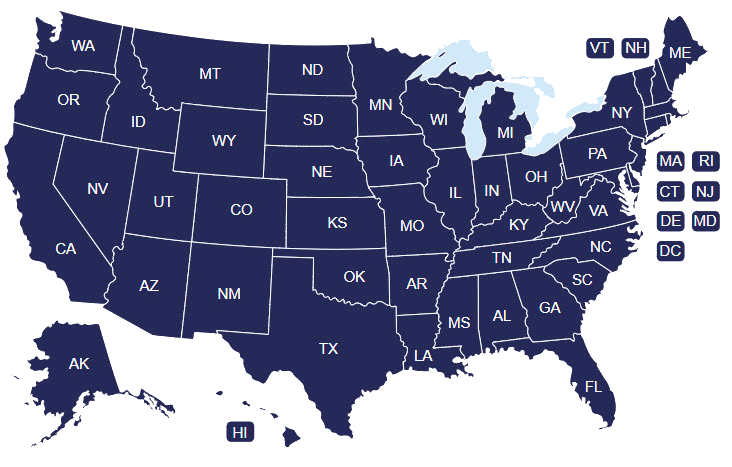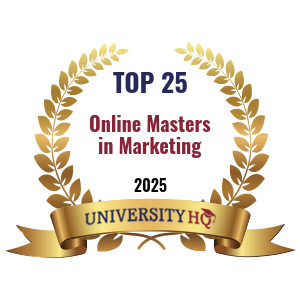Exploring Marketing Careers
In the marketing field, numerous roles cater to different skill sets and interests. Understanding these roles, required skills, and growth potential can help you navigate your marketing career path more effectively.
Marketing Roles and Job Titles
Marketing offers a diverse range of roles. As a marketing manager, you oversee strategies and campaigns. A content marketer focuses on creating engaging material to attract customers. An SEO specialist optimizes content for search engines.
Marketing strategist roles involve planning campaigns to meet specific goals. As a marketing analyst, you analyze data to understand market trends. In positions like product marketer or brand manager, responsibilities include promoting a product or maintaining brand consistency. Additional roles include event marketer, social media coordinator, and copywriter.
Necessary Skills for Marketers
To thrive in marketing, certain skills are crucial. Strong communication skills are essential, enabling you to convey ideas clearly. Creativity is important for roles like content marketer and copywriter, while analytical skills are critical for a marketing analyst.
Technical skills, such as SEO and data analysis, are valuable, especially for an SEO specialist. Project management skills are necessary for managing campaigns efficiently. Being adaptable helps you keep up with market trends and technological advancements.
Understanding consumer behavior is vital, as is the ability to work collaboratively across departments. Proficiency in digital marketing tools and platforms is also increasingly important.
Career Growth and Progression
Marketing professionals can look forward to significant career growth opportunities. Many employees start as coordinators or assistants, gradually advancing to specialist or manager roles. Experience and demonstrated success in your role often lead to higher positions like marketing manager or brand manager.
Over time, you might become a senior strategist or director, overseeing large-scale campaigns or managing entire marketing departments. Networking and ongoing education, through courses and certifications, can accelerate your career.
Staying updated with industry trends and improving your skill set enhances your chances of progression. Participating in workshops and attending marketing seminars can provide new insights and opportunities for growth.
Educational Pathways in Marketing
Exploring educational pathways in marketing involves understanding different degree programs, valuable certifications, and gaining practical experience through internships. These avenues provide essential knowledge and skills to advance your marketing career.
Undergraduate Marketing Degrees
Some students will start with an online associate degree in marketing, while this is a good starting point, it will only typically land you entry level marketing positions. Pursuing an undergraduate degree in marketing opens numerous pathways in diverse fields. You will gain essential skills such as analytical thinking, strategic planning, and effective communication. These skills are crucial for roles in advertising, sales, and public relations.
Courses typically cover core topics like consumer behavior, digital marketing, and brand management. You'll often have opportunities for internships, providing practical experience. This hands-on exposure is valuable for understanding real-world marketing dynamics.
Career Outlook: With a marketing degree, you can expect competitive salaries. According to recent data, the average salary can reach around $74,000 annually. Your earnings may vary based on location, experience, and industry. To fast track your education, you may want to consider an accelerated marketing program.
Graduate Marketing Degrees
Pursuing a graduate degree in marketing can expand your career opportunities. Master's degrees in marketing typically come in two flavors: an MBA with a marketing focus, or a specialized master’s in marketing or marketing science.
When considering online options, tuition varies widely. Expect rates from $565 to $1,402 per credit. Total tuition can range from $16,950 to $48,780 depending on the program length, which usually spans 28 to 45 credits.
Many programs are STEM-eligible, particularly those focusing on analytics. This is ideal if you're interested in technology-driven marketing, particularly in sectors like media or financial services.
Admissions requirements typically include a bachelor's degree, professional experience, and, in some cases, standardized test scores. These programs are designed to prepare you for leadership roles by challenging your critical thinking and problem-solving skills.
Certifications and Online Courses
Marketing certifications and online courses offer flexibility and specialization in specific marketing areas. Platforms like Coursera provide courses on topics like digital marketing, SEO, and analytics. Earning certifications enhances your resume and shows commitment to learning.
Popular certifications include Google Analytics Certification and HubSpot Inbound Marketing Certification. These programs offer practical insights and are often self-paced, allowing you to fit learning into your schedule. They are beneficial whether you are entering the field or looking to update your skills.
Internships and Work Experience
Internships offer hands-on experience and networking opportunities crucial for career advancement. Engaging in marketing internships allows you to apply classroom knowledge to real-world problems. This experience is invaluable for your resume, showing potential employers your practical skills and industry knowledge.
Internships can often lead to full-time positions and help you build relationships with professionals in the field. Actively participating in marketing campaigns and projects during your internship will give you a deeper insight into the day-to-day operations of a marketing team.
Building Essential Marketing Skills
Developing essential marketing skills involves nurturing both soft and technical skills. It's crucial to balance creative abilities such as communication and writing with the technical aspects like data analysis and digital tools. This mix ensures that you can effectively convey ideas while executing campaigns with precision.
Soft Skills Development
Soft skills are integral to marketing success. Communication skills, both verbal and written, are foundational. They allow you to share ideas clearly and persuasively. Focus on improving your writing by practicing different styles, from emails to reports.
Creative thinking nurtures innovation. Engaging in activities that stimulate your imagination can enhance this. Project management and organizational skills help in juggling multiple tasks and deadlines. They ensure that your strategies are executed smoothly and efficiently.
Time management is essential to prioritize tasks effectively. With good organizational skills, you can boost productivity by arranging tasks logically without sacrificing quality. Mastering these soft skills fosters an environment where your creativity flourishes, and your projects reach their full potential.
Technical Skills Enhancement
Technical skills form the backbone of a marketing career. Understanding digital marketing expertise involves tools like SEO and analytic software. These skills are necessary for measuring the impact of marketing efforts.
Analytical skills are critical for interpreting data and drawing meaningful insights. This involves studying consumer behavior and campaign performance. Additionally, graphic design skills enhance your ability to convey messages visually. Platforms such as Adobe Creative Suite are invaluable for this.
Incorporate continuous learning into your routine by leveraging online courses and webinars. This keeps you updated with the latest tools and trends, ensuring your technical prowess remains sharp.
Digital Marketing Techniques
In the fast-paced world of digital marketing, mastering the right techniques is key to achieving success. This section explores content marketing, engagement strategies on social media, and the power of analytics in driving marketing results.
Content Marketing and SEO
Content marketing is about creating valuable, relevant content to attract and engage your audience, while search engine optimization (SEO) ensures that your content is easily accessible via search engines. As a digital marketer, integrating both strategies can enhance visibility and customer engagement. Focus on producing high-quality content aligned with SEO practices such as using keywords effectively, optimizing metadata, and ensuring mobile-friendly web design. Collaborating with SEO specialists can further refine your approach, helping you to reach top search engine rankings and drive organic traffic to your site.
Social Media Engagement Strategies
Social media platforms are vital for building brand awareness and engaging with your audience. To maximize their potential, adopt effective engagement strategies. Regularly post relevant content that resonates with your target audience. Utilize interactive media like polls, live videos, and stories to foster two-way communication. Platforms such as Facebook, Instagram, and Twitter should act as extensions of your marketing efforts. Remember to keep your tone authentic and responsive. Building genuine relationships through social media marketing means actively listening to your audience's feedback and adapting your strategy based on their needs and preferences.
Leveraging Analytics for Marketing
Data analytics is essential for understanding customer behavior and refining marketing strategies. Tools like Google Analytics provide insights into how users interact with your website and content. Use this data to identify trends, optimize marketing campaigns, and track conversion rates. By analyzing metrics such as traffic sources, bounce rates, and page views, you can make informed decisions about resource allocation. Moreover, leveraging analytics enables personalized marketing, allowing you to tailor content based on customer preferences. Efficient use of analytics helps in maximizing return on investment and enhancing overall marketing effectiveness.
Strategic Marketing and Branding
Strategic marketing and branding are crucial in positioning a business in the market and enhancing its visibility. Through integrated strategies, a brand can achieve greater recognition and trust with its audience, leveraging both traditional and digital marketing channels.
Developing a Marketing Strategy
To develop an effective marketing strategy, assess your business objectives, target audience, and unique selling propositions. Conduct market research to understand your market's trends and preferences. Use this data to shape your marketing strategies by selecting appropriate channels and tactics.
Consider event marketing as part of your strategy to engage directly with your audience. Events provide a platform to promote brand awareness and establish connections. Integrate both online and offline marketing efforts, and continuously monitor performance metrics to adjust and optimize your strategy.
The Art of Brand Management
Brand management involves building and maintaining a strong brand identity. Focus on creating brand awareness through consistent messaging and visual elements that resonate with your target market. Develop a brand strategy that aligns with your marketing goals, emphasizing your brand's unique value.
Utilize various channels, including digital marketing, to reinforce your brand's presence. It's vital to keep the customer's experience and perception in mind, ensuring they associate positive attributes with your brand. Regular feedback from your audience can guide you in refining brand marketing to maintain relevance and authenticity.
Mastering Public Relations and Communications
Mastering public relations and communication involves developing skills in key areas such as event planning, crisis management, and effective communication. These skills are essential for brand managers and communication professionals to build strong relationships and successfully manage the brand reputation.
Event Planning and Management
In public relations, effective event planning and management are crucial for promoting a brand or organization. It involves coordinating details such as venue selection, guest management, and logistics. Strong communication skills are necessary to engage with various stakeholders, including event marketers and customer service teams.
Considerations for successful events include understanding the target audience and aligning event objectives with broader communication goals. Event planners often collaborate closely with copywriters to ensure consistent messaging. They may also work with fundraising teams when events have a fundraising component.
Crisis Communication and Management
Crisis communication requires a strategic approach to manage public perception during challenging times. Effective crisis management involves timely and transparent communication to maintain trust. As a professional, you must develop communication strategies that address stakeholder concerns swiftly.
Brand managers play a vital role in shaping the response, often collaborating with public relations teams to craft coherent messages. Developing crisis communication skills helps you handle media interactions and public statements. It's crucial to prepare contingency plans and engage with audiences through digital channels to provide updates and mitigate potential reputational damage.
Emerging Trends and Future of Marketing
Marketing is evolving rapidly, driven by changes in technology and consumer behavior. Digital marketing remains at the forefront, with businesses increasingly harnessing data-driven strategies. You may notice a rise in the importance of AI tools to create personalized experiences.
Another trend is the shift in consumer behavior. More individuals are using social media for product discovery, influencing the growth of social media marketing. This shift has made it essential for marketers to stay agile and adaptive.
The movement towards remote marketing jobs has seen significant strides, especially after the push from COVID-19. This opens a range of opportunities in the global job market, emphasizing the need for skills in virtual collaboration.
In your job search, leveraging updated market research methodologies becomes critical. It can guide you in understanding the shifting patterns in consumer behavior and tap into emerging markets effectively.
Consider focusing on skills related to digital marketing and remote work to enhance your career. These areas are gaining traction, and staying informed about the latest market trends will keep you competitive in the field.
State-By-State Marketing College Rankings
Select a State to Search Colleges & Universities

- Select a State
-
- Alabama
- Alaska
- Arizona
- Arkansas
- California
- Colorado
- Connecticut
- Delaware
- District of Columbia
- Florida
- Georgia
- Hawaii
- Idaho
- Illinois
- Indiana
- Iowa
- Kansas
- Kentucky
- Louisiana
- Maine
- Maryland
- Massachusetts
- Michigan
- Minnesota
- Mississippi
- Missouri
- Montana
- Nebraska
- Nevada
- New Hampshire
- New Jersey
- New Mexico
- New York
- North Carolina
- North Dakota
- Ohio
- Oklahoma
- Oregon
- Pennsylvania
- Rhode Island
- South Carolina
- South Dakota
- Tennessee
- Texas
- Utah
- Vermont
- Virginia
- Washington
- West Virginia
- Wisconsin
- Wyoming


